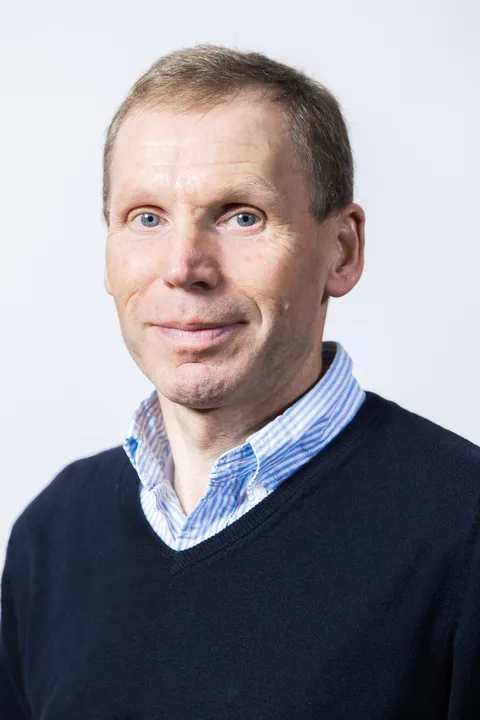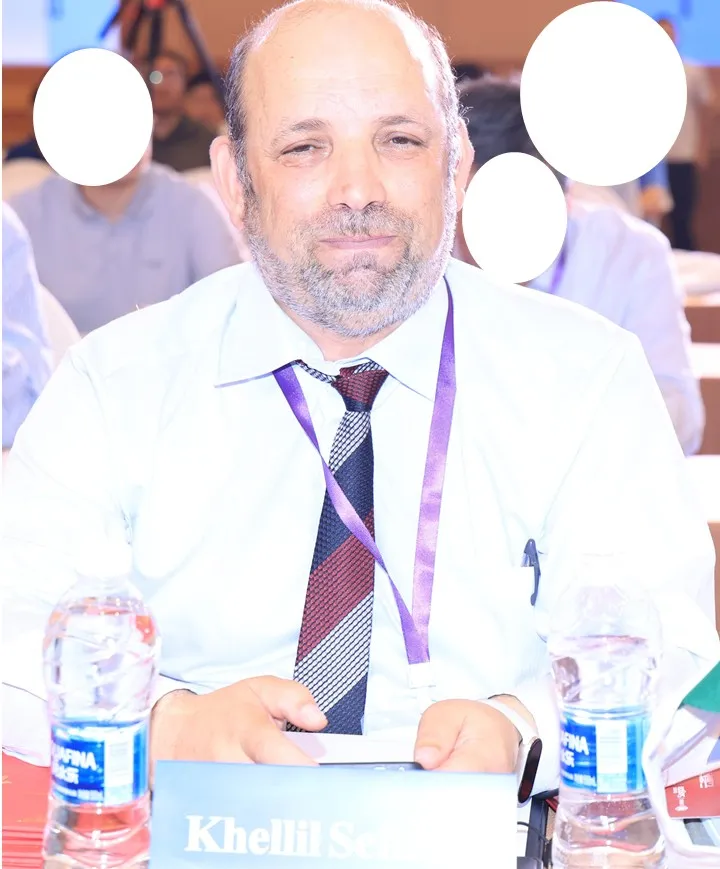
Multiscale Thermofluids
Advanced electronic/optoelectronic technologies designed to allow stable, intimate integration with living organisms will accelerate progress in biomedical research; they will also serve as the foundations for new approaches in monitoring and treating diseases.
We invite applications for a fully funded PhD position focused on next-generation subgrid-scale (SGS) modelling for Large-Eddy Simulation (LES), combining generative artificial intelligence with physics-based turbulence modelling. Accurate SGS closures remain a major bottleneck for predictive LES of complex turbulent flows, particularly in aeronautics, energy systems, and environmental applications. While classical models have seen limited progress, recent advances in generative AI, especially Generative Adversarial Networks (GANs), offer unprecedented opportunities to reconstruct multiscale turbulent dynamics and learn physically consistent representations from data. The PhD project aims to develop a hybrid LES closure that couples GAN-based super-resolution reconstruction with established physical models to predict SGS stresses and scalar fluxes. Building on successful results in homogeneous isotropic turbulence, the research will extend these methods to wall-bounded flows (channels and boundary layers) and free shear flows (mixing layers and jets). A central focus will be generalisation, ensuring robustness across Reynolds numbers, geometries, and filter conditions. The project will also exploit transfer learning to create reusable, multi-flow foundational models that can be efficiently adapted to specific applications using limited data. The student will work with high-quality DNS datasets already available within the group and collaborators, and will have access to national and European high-performance computing facilities. The work includes a priori and a posteriori LES validation, stability and robustness analysis, and integration into practical LES frameworks. Candidate profile: We seek highly motivated candidates with a strong background in fluid mechanics, turbulence, or computational physics/engineering. Experience with numerical simulation, data-driven methods, or machine learning is desirable but not mandatory; training will be provided. This PhD offers an excellent opportunity to work at the interface of turbulence physics and modern AI, addressing a problem of high scientific and industrial relevance.
The funding is available to Home applicants only (UK and EU settled/pre-settled).
The funding is available to Home applicants only (UK and EU settled/pre-settled).
This is a competitive funding opportunity. The application process involves two interviews – an initial technical interview performed by the project supervisors (to be completed before 30th January), and a second competitive interview with a panel in either the weeks commencing 16th or 23rd February 2026.
Circulating tumour cells (CTCs) are cancer cells that detach from primary or metastatic tumours and enter the bloodstream, offering a rich source of information for early detection, monitoring of disease progression, and tailoring personalised treatments. However, isolating these cells remains extremely difficult. They are exceptionally rare, and their physical properties—such as size, shape, and deformability—vary widely across patients, cancer types and disease stages. Most existing microfluidic separation devices struggle because they are optimised for a narrow range of cell characteristics and cannot accommodate this biological variability. Inertial microfluidics is a rapidly growing technology that uses hydrodynamic forces to focus and separate cells at high throughput without the need for chemical labels. While powerful, current devices share one fundamental limitation: their internal flow environment is fixed once fabricated. As a result, they cannot be tuned or adapted to different sample conditions. A device that performs well for one patient or cancer type may perform poorly for another. This PhD project aims to address this challenge by developing adaptive inertial microfluidic systems—devices in which the internal flow behaviour can be modified or controlled after fabrication. Rather than relying on static geometries or single-purpose designs, the project will explore approaches that allow the microscale flow field to respond to changes in operating conditions, making it possible to tailor separation performance to unknown or variable CTC properties. This shift from static to adaptive design has the potential to yield more universal diagnostic platforms capable of handling diverse clinical samples without prior knowledge of cancer type or stage. The project will integrate advanced computational modelling with experimental microfluidics. Computationally, the student will use high-fidelity simulations to investigate how inertial flow structures change under adaptive conditions and how these changes influence particle and cell migration. Numerical modelling provides complete spatial and temporal datasets, enabling the exploration of underlying physical mechanisms that cannot be directly observed in the laboratory.
Experimentally, the student will fabricate and test prototype devices, characterising flow behaviour and cell analog trajectories to validate and refine the computational findings. This combined approach ensures both deep physical insight and practical relevance. The supervisory team provides strong complementary expertise: Dr Sally Peyman (Heriot-Watt University) – experimental microfluidics, device development, biomedical applications Dr Benjamin Owen (University of Edinburgh) – computational modelling, multiphysics simulation, inertial microfluidic theory The project also benefits from collaboration with Prof. Ian Papautsky (University of Illinois Chicago), a world-leading figure in microfluidic cancer diagnostics and Director of CADMIM. His involvement provides industry-informed guidance on translation and real-world applicability. This PhD offers an exciting opportunity to work at the intersection of biomedical engineering, fluid dynamics, and microsystem design. The student will gain expertise in high-performance computing, fluid simulation, microfabrication, microscopy and diagnostic technology development. The outcomes of this project have the potential to significantly advance patient-specific liquid biopsy tools and contribute to the next generation of adaptive lab-on-chip systems.
Minimum entry qualification- an Honours degree at 2:1 or above (or international equivalent) in a relevant science or engineering discipline, possibly supported by an MSc Degree
Further information on English language requirements for EU/Overseas applicants.
Applications are welcomed from self-funded students, or students who are applying for scholarships from the University of Edinburgh or elsewhere.
Competition (EPSRC) funding may be available for an exceptional candidate but please note you must be a UK student or an EU student who has pre-settled/settled status and has lived in the UK for at least 3 years.

- His PhD was completed at the University of Edinburgh, investigating the correlation between milk clot deposition and flow characteristics, with a view to gaining greater insight into thrombosis in blood flows.
- John Christy was born in Bangor, N. Ireland in 1959. Following his education at the local grammar school, he studied Chemical Engineering at the University of Cambridge from 1978 to 1982.
- Process Synthesis within Chemical Engineering 1
- Plant Engineering 2 (pipework systems, control and compressible flow)
- Design Exercises in 4th year (reactor and heat exchanger designs)
- Polymer Science and Engineering 5 (polymer reaction engineering)
- Separation Processes 5 (advanced distillation)
- Study projects, Industrial projects and Research projects
- Current research interests are in the area of unsteady state fluid mechanics. Research continues on the development of an in-vitro, pre-clinical test for thrombosis on artificial mechanical valves.
- Work underway also involves the study of flow instabilities in boiling heat transfer, with applications in microelectronics cooling
- Undergraduate Selector
- Convenor of Chemical Engineering Board of Examiners
- Personal Tutor
- MSc (Mathematical Modelling and Numerical Analysis) University of Oxford
- BSc(Eng)(Hons) (Chemical Engineering) University of Cape Town
- D.Phil, University of Oxford
- CEng MIChemE

Professor Khellil Sefiane, PhD, HDR, FRSC and FInstP is a Professor and chair of Thermo-Physical Engineering in the School of Engineering at the University of Edinburgh (https://www.ed.ac.uk/), Scotland, United Kingdom. He was the Head of the research Institute for Multiscale Thermofluids (IMT), 2018-2024 and Head of the Institute for Materials and Processes (IMP) from 2012-2015 at the University of Edinburgh. Professor Sefiane is the Vice-Chair of the UK National Heat Transfer Committee, https://www.uknhtc.org/. Professor Sefiane is the UK delegate on the Scientific Council of the Intenational Centre for Heat and Mass Transfer, https://www.ichmt.org/. He also represents the UK on the European Thermal Committee, EUROTHERM, http://www.eurothermcommittee.eu/. He was associate editor for the International Journal of Heat and Mass Transfer, Elsevier (2017-2024) and has been associate editor for the International Journal of Multiphase Flows and the ASME Journal of Heat Transfer.
He held numerous honorary appointments in international institutions including an Adjunct Professor at the University of Toronto, Canada (2008-2014), Visiting Professor at Kyushu University, Japan (2015) and WPI -World Premier International Professor at the International Centre for Carbon Neutral Energy Research (I2CNER) at Kyushu in Japan (2015-2019), honorary Professor at Tsinghua University in China (2022-2025), Extraordinary Professor at Pretoria University, South Africa (2019) and visiting Professor at Universite Paris-Saclay, France (2020 and 2025). He is Fellow of the Royal Society of Chemistry (FRSC), Fellow of the Institute of Physics (FInstP) and holds an ExxonMobil fellowship and a Global Research Award, both awarded by the Royal Academy of Engineering, London. Professor Sefiane has been research active for the last 28 years in various areas related to multiphase flows, heat transfer, microfluidics, interfacial phenomena and phase change. He has published more than a 250 journal papers in international journals and was co-editor of the textbook Drying of Complex Fluid Drops: Fundamentals and Applications, published by the Royal society of Chemistry (RSC), 2022, https://pubs.rsc.org/en/content/ebook/978-1-78801-790-9. He has been recipient of the prestigious Institute of Physics (IoP) award (2009), the Global Research Award by the Royal Academy of Engineering, London (2011) and the Japan Society for Promotion of Science (JSPS) Award in 2014 and the David R. Kenning Award in 2024. Professor Sefiane is member of numerous international scientific committees of experts in heat transfer and multiphase flows (ICHMT, EUROTHERM, Chair of the Nusselt-Reynolds, Nu-Re Prize and chair of the David B.R. Kenning award committee) and member of the international Board of the Nukiyama Memorial Award (NMA) awarded by the Heat Transfer Society of Japan (HTSJ). Prof. Sefiane taught undergraduate and graduate students at universities in UK, France, Canada, Japan and China. He has been recipient of research grants from the UK research Council (EPSRC), the British Royal Society (RS), the European Union (EU), the European Space Agency (ESA) and industry.
- M.Sc., PhD in Chemical Engineering, habil. HDR in Engineering
- Fellow of the Institute of Physics, FInsP, 2012, UK.
- Fellow of the Royal Society of Chemistry, FRSC, 2011, UK.
- ExxonMobil Fellow, awarded by the Royal Academy of Engineering, London, 2000, UK.
- Vice-chair of the UK National Heat Transfer Committee, https://www.uknhtc.org
- Deputy Chair of the Nusselt-Reynolds (Nu-Re) international prize, 2018-2024
- Chair of the Nusselt-Reynolds (Nu-Re) international prize, 2024-2027
- UK representative on the EUROTHERM European committee, http://www.eurothermcommittee.eu/
- UK representative on the Scientific Council of the Intenational Centre for Heat and Mass Transfer, https://www.ichmt.org/
- UK Editor for the International Journal of Heat and Mass Transfer (IJHMT) (2017-2024), Elsevier
- World Premier International (WPI) Professor, International Institute for Carbon Neutral Energy Research (WPI-I2CNER), https://i2cner.kyushu-u.ac.jp/en/, 2015-2022, Kyushu University, Japan.
- Corresponding member of the European Academy of Sciences Arts and Literature.
- Adjunct Professor, Department of Mechanical & Industrial Engineering, University of Toronto, 2008-2014, Canada.
- Honorary Professor, Kyushu University, 2015, Japan.
- Fellow, Japan Society for the Promotion of Science (JSPS), 2011, Japan.
- Honorary Professor, Tsinghua University, Beijing, 2022-2025, China.
- Visinting Professor, Univeriste Paris-Saclay, Paris, 2020 and 2024, France.
- Visiting Professor at Université Picardie Jules Verne, Amiens (2008), Université de Valenciennes (2009, 2011), École Normale Supérieure- Cachan (2014, 2015), École nationale supérieure d'Arts et Métiers (ENSAM), 2023, France.
- Visiting Professor, Strathclyde University, Glasgow, 2015-2017, UK.
- Extraordinary Professor, Pretoria University, 2020, South Africa.
- Guest Professor, Shanghai Jiao Tong University, 2019, China.
- Associate Editor, International Journal of Multiphase Flows, Elsevier, 2015-2016.
- Associate Editor of the ASME Journal of Heat Transfer, 2014-2015
- Global research award, Royal Academy of Engineering, London, 2011. UK.
- Chair of the David B.R. Kenning award committee, UK, https://www.uknhtc.org/david-kenning-award
- Member of the Board of the Nukiyama Memorial Award (NMA) awarded by the Heat Transfer Society of Japan (HTSJ). 2024-2026.
- Laboratory and Group web page
- Separation Processes 5, 4th and 5th year.
- Work Visits (Chemistry and Processes 2), 2nd year.
- Chemical Engineering Design 4, 4th year.
- Interfacial processes and capillary phenomena
- Multiphase flows and microscale heat transfer
- Wetting and phase change phenomena
- Microfluidics and thermal management of microsystems
